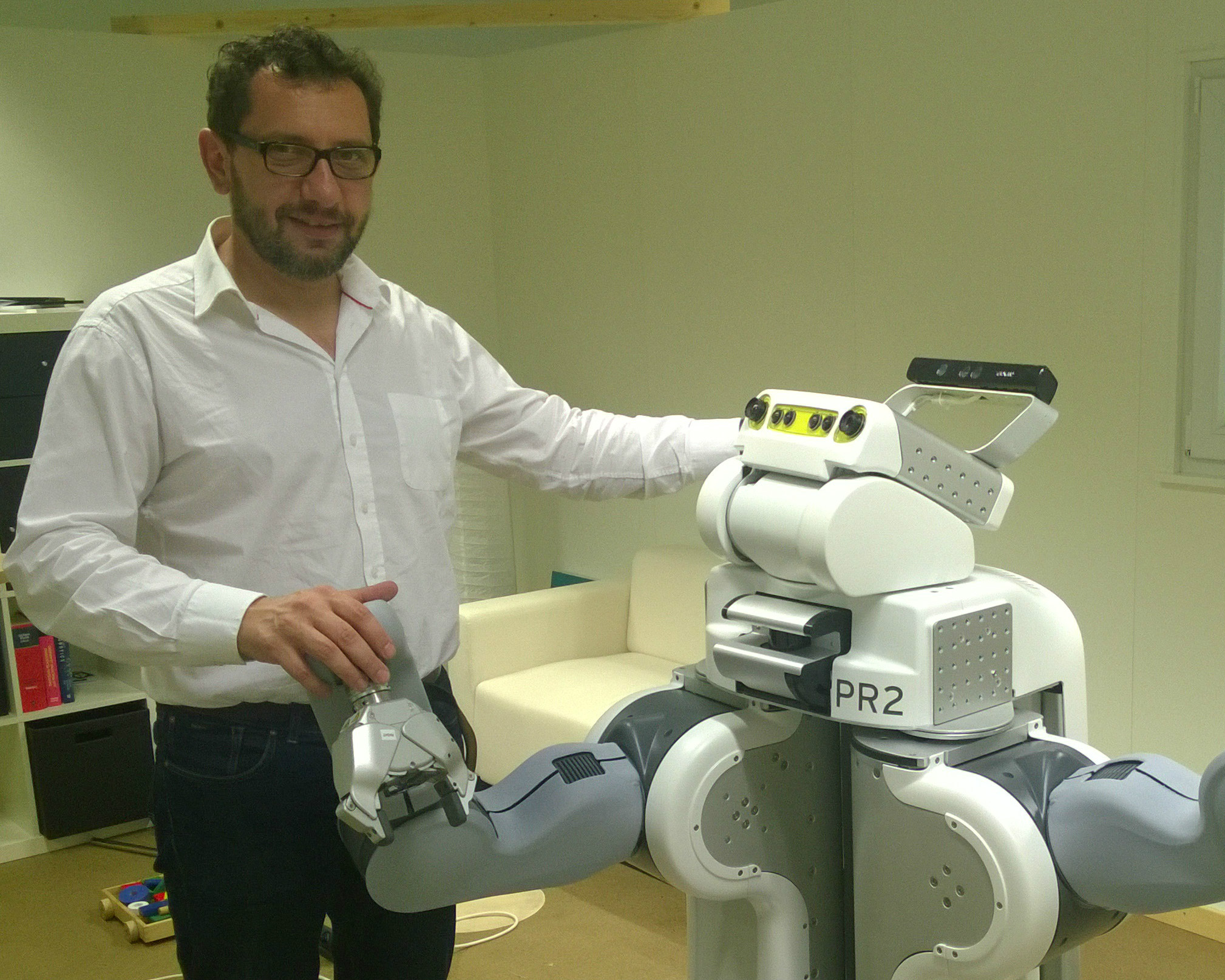
Danko Nikolić: Intelligence for robots – how can they begin to understand?
There are some amazing robots roving the surface of Mars. However, they are heavily dependent on their human operators. But what if we could provide them with human-like intelligence so that they could find their own way without assistance? What if we could teach them to autonomously deal with completely novel situations? Danko Nikolić, a neuroscientist at the Max-Planck Institute for Brain Research, has his own vision: a novel approach to Artificial Intelligence (AI) that could give robots the capability to understand the world through a method called “AI-Kindergarten”. So, can we provide for a sufficiently strong artificial intelligence to enable a robot to find its way in an environment as hostile and as unpredictable as space?
With a Ph.D. in psychology and a degree in civil engineering, Danko Nikolić is associated with the Max-Planck Institute for Brain Research and is a research fellow at the Frankfurt Institute for Advanced Studies. Furthermore, he is associated with Ernst Strüngmann Institute, and the University of Zagreb. The main motives for his studies are the explanatory gap between the brain and the mind, and strong AI. His insights in how the physical world of neuronal activity produces the mental world of perception and cognition led him to propose a novel method for development of artificial intelligence. The method is called AI-Kindergarten and is based on the assumption that artificial intelligence should be built with an unprecedentedly powerful ability to learn—one that goes well beyond what we today know as machine learning.
Follow and like TEDxESA on Facebook, Google+, Twitter and Instagram!
Image credit: Danko Nikolić/AI Kindergarten
